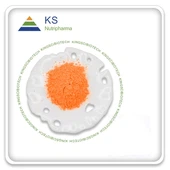Lutein is a popular carotenoid that is helpful in both promoting eyesight and the general well-being. This is widely present in brightly Colored Fruits and Vegetables, especially leafy green vegetables such as spinach and kale. Nonetheless, the question arises in the minds of many consumers and professionals in the industry whether nuts, including Brazil nuts, have lutein and whether or not they can be used as nutritional sources.
Lutein and Its Sources
Lutein is a pigment found in a group of pigments in plants known as carotenoids, which give fruits and vegetables their bright yellow, orange, or green color. It is known to be an antioxidant, and it also contributes to eye health, due to how it helps filter out dangerous blue light, which protects the integrity of the retinal tissues, too. Green leafy vegetables, corn, egg yolks, and some fruits, e.g., kiwi and grape, are a source of lutein most often.
Nutritional Profile of Brazil Nuts
Brazil nuts are excellent foods with a high content of selenium, healthy fats, protein, and other micronutrients. They contain selenium, which is one of the most excellent natural sources of this essential trace mineral and which is important in the antioxidant enzymes. Brazil nuts also have magnesium and zinc, vitamin E, and B vitamins. The fatty acids they contain are mainly monounsaturated and polyunsaturated, which are cardiovascular and cognitive-healthy.
Do Brazil Nuts Have Lutein?
Although Brazil nuts contain a rich nutrient content, they are not normally good sources of lutein. Scientific breakdown on the composition of Brazil nuts shows that the carotenoid component, among them lutein, is insignificant or non-existent. This conforms to the fact that lutein is mostly concentrated in the photosynthetic part of plants (eg, leaves and fruits), and the Brazil nuts are seeds that contain lots of fats and minerals, but lack carotenoids.
Hence, Brazil nuts are not regarded as food sources of lutein and, as such, should not be used to boost the intake of lutein.

Why Brazil Nuts Are Still Valuable in a Lutein-Focused Diet?
Brazil nuts do not contain lutein, but are beneficial with other nutritional values that help with general well-being. They are rich in selenium, which plays a role in protecting the body against oxidation, and this has an indirect effect on the health of the eye, as well as cellular health. Brazil nuts are also an extra source of vitamin E and good fats that aid in proper cell membranes and possibly increase lutein nutrient absorption, such as fat-soluble elements, compared with fat-soluble cold sources such as lutein, when lutein-rich foods are included.
Manufacturers that target eye health or antioxidant supplements may add Brazil nut as another ingredient in support, but lutein, whereby is more concentrated in their botanicals that are used, i.e., use marigold flower extracts or green leafy vegetable powders.
Incorporating Lutein and Brazil Nuts in Product Development
When developing a functional food, supplement, or beverage, it is also relevant to use ingredients that have characterized carotenoid levels as a source of lutein. Marigold ( Tagetes erecta ) flower extract is the gold standard of natural lutein source in the industry, where standardised and high-concentration lutein is considered.
With its concentrated micronutrient content, Brazil nuts can be regarded as a complementing ingredient where the benefits of antioxidant status and overall nutrient levels are concerned. Such a multi-ingredient solution enables manufacturers to make broader health claims, and at the same time clearly indicates the main source of lutein.
Summary
Conclusively, Brazil nuts contain no lutein and, as such, they do not lead directly to dietary intake of lutein. Their virtues are in other nutrients, especially healthy fats and selenium, which promote overall wellness and possibly contribute to the nutrient bioavailability of other fat-soluble nutrients such as lutein. As a product developer or health professional interested in developing or prescribing lutein-enriched foods or supplements, it is important that he/she focus on effective botanical sources of lutein, although Brazil nuts may be used as nutritional supplements.
FAQ
Q1: Are Brazil nuts a good source of antioxidants?
Yes, Brazil nuts contain many kinds of selenium and vitamin E, which are all antioxidants and are beneficial to cell health.
Q2: What foods are best for natural lutein intake?
Natural sources of lutein include leafy vegetables like kale, spinach, and collard greens, as well as the extracts of marigold flowers.
Q3: Can eating Brazil nuts improve eye health?
Although Brazil nuts do not contain lutein, their selenium and healthy oils could boost the general antioxidant protection, which leads to indirect benefits for eyesight.
Q4: Is lutein supplementation necessary if I consume Brazil nuts regularly?
Yes, because Brazil nuts do not contain lutein, one needs to supplement or consume foods that contain lutein in quantities.
Q5: How can Brazil nuts be incorporated into eye health supplements?
Antioxidant and healthy fats may be offered as limiting nutrients, but Brazil nuts can be used as an ingredient to supplement the lutein-rich ingredients in solutions.
References
1. Johnson, E. J. (2019). Role of lutein and zeaxanthin in visual and cognitive function throughout the lifespan. Nutrients, 11(8), 1633.
2. De Souza, M. C., & Barros, S. B. M. (2021). Selenium content and nutritional benefits of Brazil nuts: A review. Food Chemistry, 345, 128775.
3. Sharif, R., et al. (2020). Carotenoid composition of nuts and seeds: Potential for human nutrition and health. Journal of Food Composition and Analysis, 86, 103417.
4. Ma, L., Lin, X. M., & Zhang, Y. (2022). Dietary sources and bioavailability of lutein: A review. Critical Reviews in Food Science and Nutrition, 62(3), 589–602.






